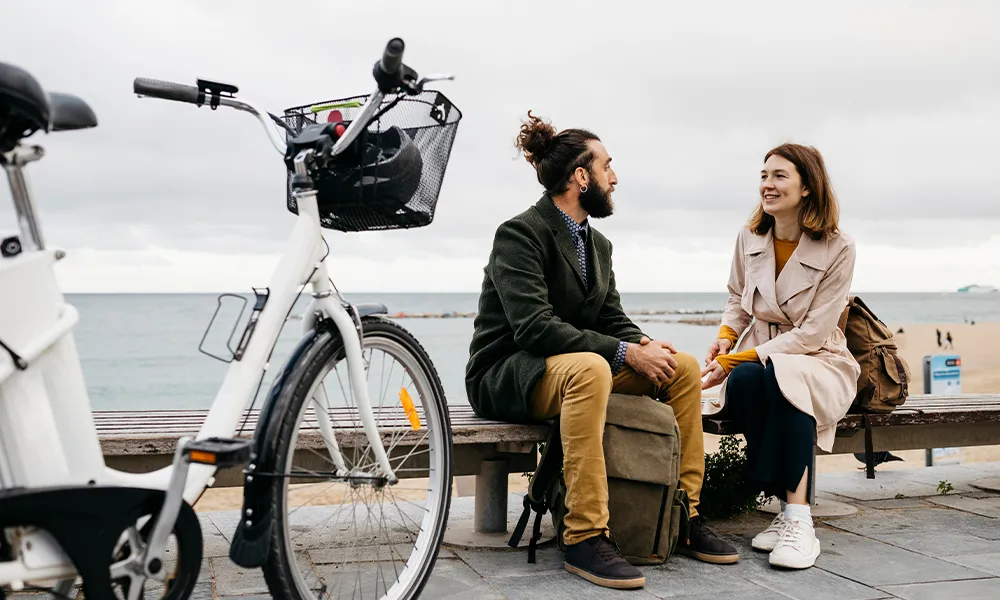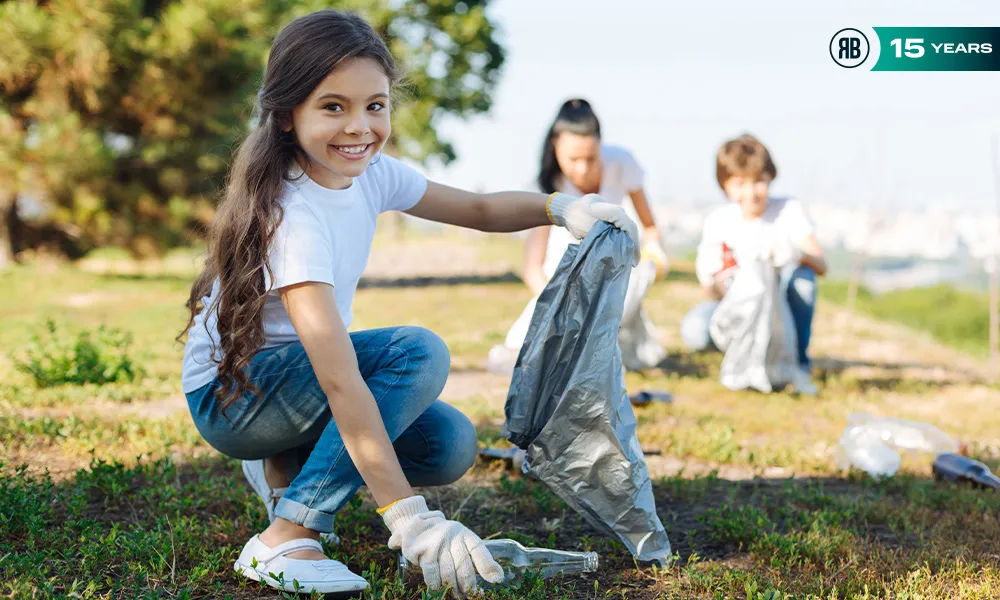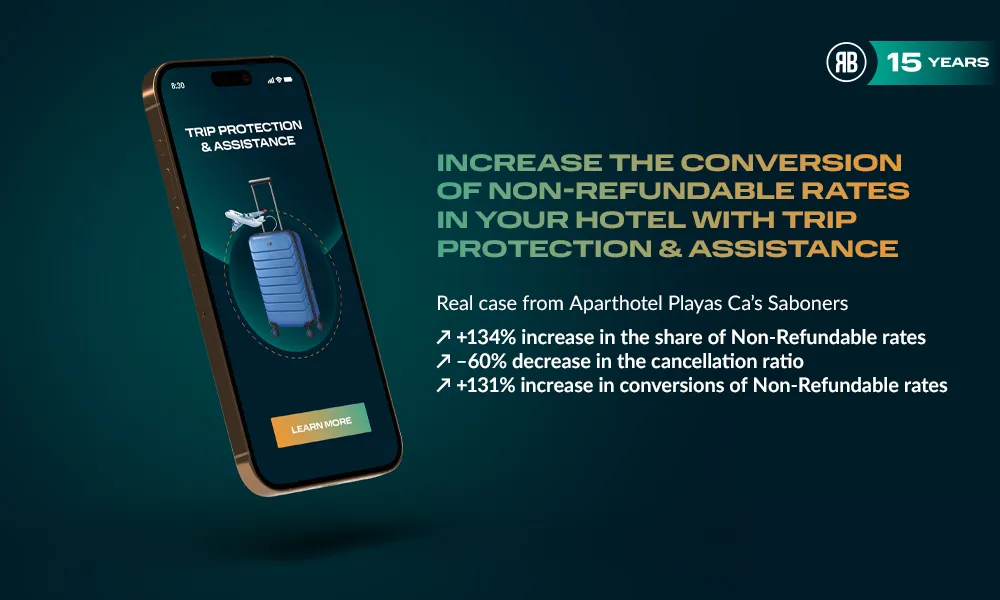Sustainable mobility for guests and employees: a step towards responsible tourist accommodations and destinations
News
October 16, 2025

Content in collaboration with our partner Bioscore Sustainability, a sustainability consultant for tourism companies.
Mobility has become one of the main pillars of sustainability in the tourism sector. We usually think of long-distance trips by plane or boat, but each trip in a private car generates CO₂ emissions, while incentivizing sustainable alternatives reduces environmental impact and improves the organization's reputation. Today's travelers value accommodations that offer responsible transportation options: from electric bicycles or scooters, to charging stations, sustainable transfers, or agreements with public services. Committing to sustainable mobility is not a passing trend, but a tangible way to make a difference and generate a positive impact.
Key benefits of sustainable mobility:
✅ Reduction of the carbon footprint of the accommodation or tourist destination.
✅ Improvement of the guest experience and their loyalty.
✅ Positioning as a benchmark in responsible tourism.
Beyond transportation: an experience that connects
Offering sustainable transportation options not only reduces the carbon footprint, but also creates memorable experiences:
-Electric bicycles and scooters: allow you to explore the surroundings in a healthy way, connecting the guest with the local community.
-Charging stations for electric vehicles: provide ecological travelers with a more complete and comfortable experience.
-Collaborations with public transport or shared mobility apps: add value, reduce costs and encourage loyalty.
Accommodations and tourist destinations in different parts of the world are already adopting creative solutions, such as fleets of shared electric vehicles, sustainable transfers from the airport, or applications that allow guests to plan mobility routes with a reduced environmental impact. All of this contributes to a more comfortable, flexible stay aligned with the sustainability values that more and more tourists are looking for.
Involving the team: sustainability that is lived from within
Employees are also part of this strategy: incentive programs for them to use clean or shared means of transport not only reduce the accommodation's footprint, but also strengthen its corporate culture and the team's sense of belonging. Awareness workshops, training on responsible mobility and the promotion of safe routes for bicycles or public transport are effective tools to integrate sustainability into the daily lives of staff, generating a positive impact that goes beyond emissions reduction figures.
Designing a responsible mobility policy requires clear objectives:
- Reduction of emissions and energy consumption.
- Promote safe routes for bicycles or public transport.
- Organize responsible mobility workshops.
- Facilitate the charging of electric vehicles and secure parking for staff.
- Impact measurement through digital tools: management tools and apps for sustainable transport reservations allow you to measure the impact, optimize resources and communicate achievements transparently.
When sustainability is part of the daily culture, not only is the environmental impact improved: the sense of belonging and pride among the teams also grows.
How to measure and improve: data that inspires action
Measuring the impact of your mobility actions allows you to optimize resources and demonstrate results. Here, digital tools such as the Bioscore Data Platform can be great allies. This comprehensive management software allows you to:
- Monitor your organization's mobility consumption.
- Include mobility-related consumption in the calculation of the carbon footprint.
- Establish sustainable mobility goals and monitor the fulfillment of actions developed to achieve your goals.
Communicate achievements: sustainability that is noticeable
Advances in sustainable mobility should be part of the accommodation's story. Integrating the results into your communication, website, social networks, informative materials, or certifications, reinforces the trust of your guests and differentiates you in the market.
Some examples:
- Show the kilometers traveled by bicycle by guests.
- Publish the annual emission savings achieved.
- Share testimonials from clients or employees committed to responsible mobility.
Sustainable mobility: a strategic value
Integrating sustainable mobility into the overall strategy involves thinking globally. It is not just about offering transportation alternatives, but about connecting this initiative with other sustainability programs: waste reduction, energy efficiency, and support for the local community. For example, encouraging the use of bicycles to explore local businesses or collaborating with ecological transport providers strengthens the regional economy and creates authentic experiences for guests. Sustainable mobility, therefore, becomes an opportunity to innovate, improve the competitiveness of the accommodation or tourist destination, and contribute tangibly to a more conscious and environmentally friendly tourism.
With the support of tools like the Bioscore Data Platform, you can take firmer and more measurable steps, but the real protagonist is still your ability to move people towards a more conscious tourism.
BOOST YOUR HOTEL'S SUSTAINABILITY AND COMPETITIVENESS WITH BIOSCORE DATA PLATFORM
Bioscore, in collaboration with Roiback, presents the Bioscore Data Platform, the comprehensive tool that allows hotels to easily record, manage, measure, and communicate their sustainability performance.
EXCLUSIVE BENEFITS FOR ROIBACK CLIENTS:
- Free registration until December 2025
- Personalized consulting session with a Bioscore expert
- 20% discount if you decide to continue after the trial period
Take the step towards a more conscious and efficient hotel management with Bioscore Data Platform.
CLICK HERE TO ACTIVATE IT FOR FREE*
*Exclusive promotion for Roiback clients
Read more







